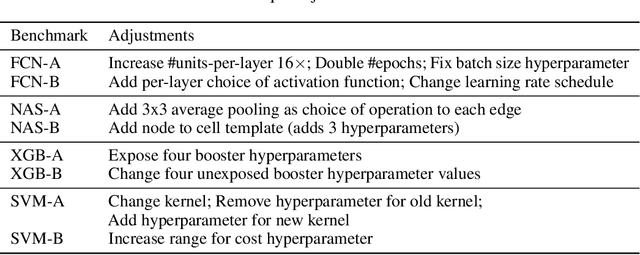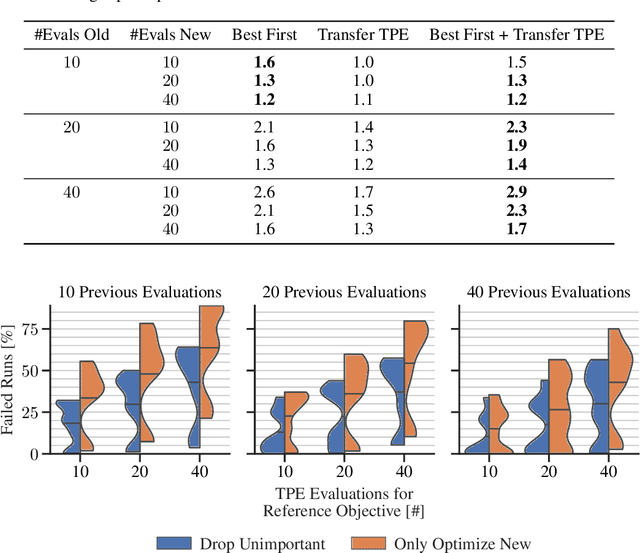Simon Selg
Hyperparameter Transfer Across Developer Adjustments
Oct 25, 2020



Abstract:After developer adjustments to a machine learning (ML) algorithm, how can the results of an old hyperparameter optimization (HPO) automatically be used to speedup a new HPO? This question poses a challenging problem, as developer adjustments can change which hyperparameter settings perform well, or even the hyperparameter search space itself. While many approaches exist that leverage knowledge obtained on previous tasks, so far, knowledge from previous development steps remains entirely untapped. In this work, we remedy this situation and propose a new research framework: hyperparameter transfer across adjustments (HT-AA). To lay a solid foundation for this research framework, we provide four simple HT-AA baseline algorithms and eight benchmarks changing various aspects of ML algorithms, their hyperparameter search spaces, and the neural architectures used. The best baseline, on average and depending on the budgets for the old and new HPO, reaches a given performance 1.2--2.6x faster than a prominent HPO algorithm without transfer. As HPO is a crucial step in ML development but requires extensive computational resources, this speedup would lead to faster development cycles, lower costs, and reduced environmental impacts. To make these benefits available to ML developers off-the-shelf and to facilitate future research on HT-AA, we provide python packages for our baselines and benchmarks.
 Add to Chrome
Add to Chrome Add to Firefox
Add to Firefox Add to Edge
Add to Edge